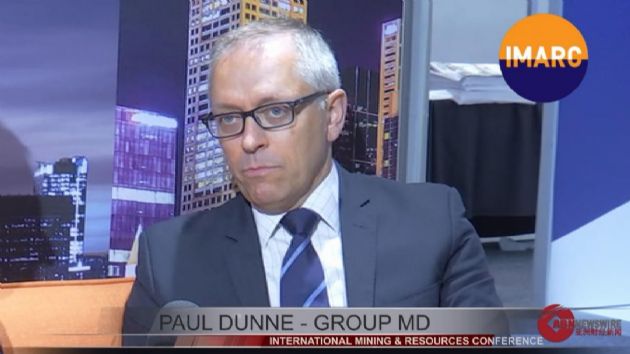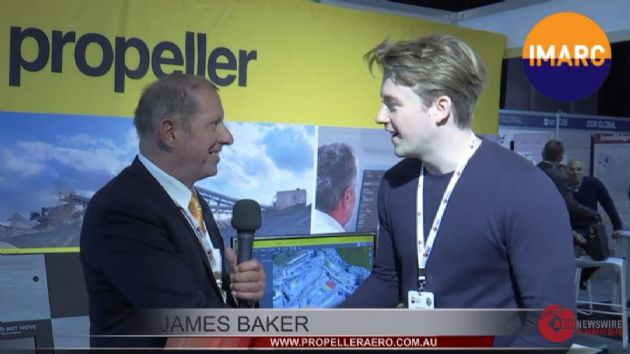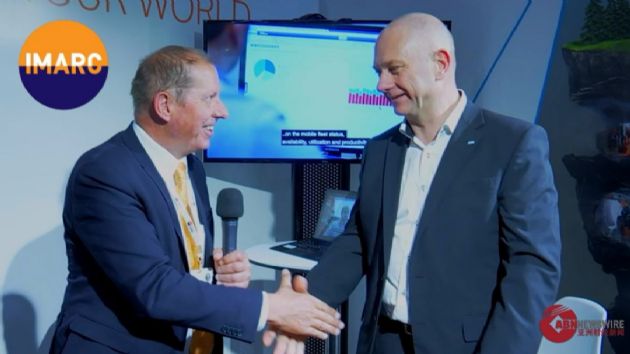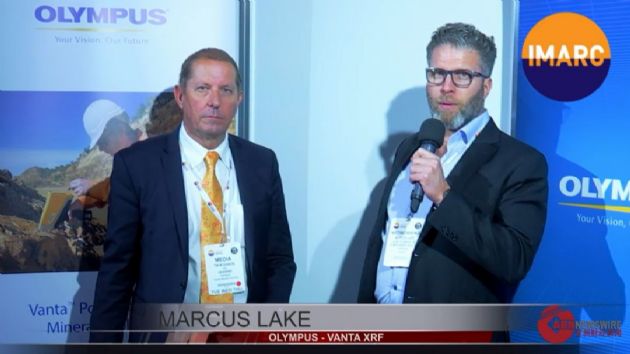 Australia Poised to Take Global Lead in Critical Minerals
Australia Poised to Take Global Lead in Critical Minerals
Sydney, Oct 26, 2023 AEST (ABN Newswire) - The announcement by Prime Minister Anthony Albanese to double the investment in the Critical Minerals Fund sets the scene for this year's International Mining and Resources Conference (IMARC) in Sydney next week.
The AU$4 billion plan is aimed at expanding the production and processing of critical minerals in Australia to secure the country's position as a global critical minerals powerhouse.
Mr Albanese said Australia is in a strong position to help the global shift to net-zero due to its large deposits of critical minerals.
"Australia is committed to building sustainable and secure critical minerals supply chains with the United States. This is central to building a clean energy future and delivering economic growth. The expansion of the Critical Minerals Facility will help to build supply chains with the United States and support our shared clean energy, manufacturing and defence ambitions," Mr Albanese said.
Minister for Resources of Australia, Madeleine King, said the road to net-zero runs through Australia's resources sector.
"The Critical Minerals Facility is a cornerstone of support, providing finance to strategically significant projects which can crowd in private investment," Ms King said.
"Coupled with our support for processing, we are well positioned to be a world leading provider of critical minerals, including rare earths elements, and to support global efforts on clean energy transformation."
Australia is fortunate to be home to some of the largest recoverable critical mineral deposits on earth, with abundant reserves of rare minerals including lithium, graphite, cobalt, and nickel.
But unlike iron ore and coal, these critical minerals are also found in many other countries, meaning Australia's traditional competitive advantage no longer comes so easily.
As the world scrambles to secure these resources of the future, this new competitive landscape has spurred an effort to unlock Australia's potential as a critical mineral powerhouse given its large reserves of rare earth minerals.
Critical minerals are integral to the global clean energy economy and are key components for products such as solar panels, batteries, medical equipment and telecommunications technology. Thankfully, Australia is well-positioned to meet the growing demand for responsibly produced minerals.
Roland Hill from FYI Resources, a leader in producing high critical minerals for the electric vehicle and high-tech appliance industry, notes that despite Australia's leading position in the critical mineral market, there remains a lot of catching up to do to meet global demand pressures.
"Australia is probably punching above its weight in terms of supply and is therefore boasting some of the largest production of lithium. However, much like the rest of the world, Australia has been caught short a little in terms of the preparedness to address the shortfall in critical minerals supply. We still have a long way to go before we can say we are global leaders in critical minerals, in the same we do for traditional resources," Mr Hill says.
The global race to secure Critical Minerals
One of the biggest challenges facing the industry is the vulnerability of supply chains and the concentration of production facilities, particularly in China. As a result, Australia is looking to improve its trade partnerships with other nations such as India, Japan and South Korea to help diversify global supply chains.
Allison Britt, Director of Mineral Resources Advice and Promotion at Geoscience Australia said nations around the world are looking to ensure stable supply chains for their economic and sovereign security.
"Developing the large-scale mineral supply chains needed for the new energy transition requires new partnerships among like-minded countries in addition to existing trade relationships," Ms Britt said.
"Australia's international partnerships, trade agreements, extraordinary geological endowment and objectives to grow production, processing and manufacturing capacity should underpin our own energy transition."
To help alleviate the supply chain constraint, the Australian Government penned a strategic cooperation agreement with South Korea during diplomatic visit by President Moon Jae-in in December 2022. South Korea is a major producer of technologies and materials that require Australian critical minerals, including products with batteries, semiconductors and electric vehicles. The nation is already Australia's third-largest export destination.
The South Korea-Australia partnership further entrenches South Korea's standing as an important energy and resources export partner. The agreement also aligns with a call made in October 2021 by the head of the South Korean Government's new critical minerals planning team, which asked for greater engagement with Australia's mining and processing capacity.
Australia's role as a hydrogen gas producer has also not gone unnoticed and has been gaining traction, particularly with South Korean resource companies. Sun Metals, owned by Korea Zinc's Australian business, Ark Energy, is building a green hydrogen plant in Townsville. Once at capacity, Korea Zinc hopes to ship more than 500,000 tonnes of hydrogen a year from Queensland to Korea to power their factories.
According to Joshua Dellios, Partner at MinterEllison, as the world looks for access to critical minerals, Australia is emerging as a preferred market given the country's well-established regulatory framework that aims to ensure the sustainable development of its mineral resources while minimising their environmental impacts.
However, these safeguards also raise barriers to investment and exploration that could jeopardise Australia's attractiveness in an increasingly competitive global market. Australia will have to overcome challenges such as, limited infrastructure, high capital costs, and the need for advanced technologies. This will require collaborative efforts among industry, government, and research institutions, as well as targeted investments in infrastructure development, technological advancements, and streamlined regulations to create a more conducive environment for the growth of the critical minerals sector.
"Navigating the barriers to critical mineral exploration and mining in Australia demands a united front, with industry, government, and research working hand in hand to unlock the potential of this vital sector and propel our nation towards a greener future," Mr Dellios said.
New technologies key to reaching targets
Given the relative scarcity of critical minerals, companies like Fleet Space Technologies are encouraging the mining and resource sector to reimagine how they search for minerals and embrace technologies from other industries. Hemant Chaurasia, Chief Product Officer at Fleet Space Technologies says there is a lot to learn from the latest advances in the space sector.
"It is clear that mineral exploration is getting harder, as we start to exhaust shallow discoveries and are forced to search deeper into the earth. This demands a much more data-driven approach to exploration," Mr Chaurasia said.
"Today, using satellites and sensors, geophysical exploration data can be transmitted to the cloud in near real-time from anywhere on earth, shortening the time it takes to create actionable 3D models of the subsurface from months to days."
With uncertainty remaining around the supply chains of critical minerals, digital technologies are becoming increasingly important assets to mining and production companies. The solutions are allowing organisations to extract greater quantities of resources from existing materials whilst also lowering production and maintenance costs. IFS, a global leader in enterprise software solutions, is assisting the broader industry by helping them optimise supply chains and production and refining processes through its products.
Warren Zietsman, Managing Director of IFS Australia and New Zealand says embracing technology, software, and AI (Artificial Intelligence) is not just a 'take it or leave it' for mining organisations; t's a vital cog in the process to achieving business and sustainability goals.
"By leveraging technologies such as AI, Augmented Reality, Digital Twins and machine learning, mining organisations can effectively manage and maintain the mining of critical minerals, while extending the life of their assets and invariably reducing their carbon footprint," Mr Zietsman said.
"By taking advantage of the capabilities that intelligent operational planning and simulation tools can provide, organisations can foresee unexpected scenarios to protect a value chain that relies on minimal disruption."
Critical Minerals a key theme at IMARC 2023
The International Mining and Resources Conference (IMARC) in Sydney later this month will feature a major focus on the global issues facing the critical mineral sector, and the challenges Australia must overcome to realise the potential to be a global critical minerals powerhouse.
With over 380 technical talks, panel discussions, and strategic keynote presentations across seven concurrent streams, IMARC offers attendees the opportunity to hear from experts across the sector as they look to revolve the varying challenges facing the mining and resource industry as they pivot towards critical minerals. Session will include:
- Driving International Supply Chain Collaboration in Critical Minerals
- Investing and Financing Australia's Critical Minerals' Independence
- The EU's Critical Raw Material Policy and Initiatives in Europe and with Third Countries
- Sustainable Mining for Green Technologies
IMARC spokesperson Paul Phelan says there will be a record number of international delegations looking to collaborate and strengthen their ties to help the global economy transition towards a sustainable, green technology-driven future.
"Critical minerals are the cornerstone of our green future, powering renewable energy, electrifying transportation, and revolutionising technology," Mr Phelan says.
"At this year's IMARC, we are delving deep into the pivotal role these resources play in shaping a sustainable world for generations to come.
"With abundant reserves of key elements such as lithium, rare earth metals, and cobalt, Australia is well-positioned and has the potential to play a major role in meeting the growing global demand for critical minerals that are essential components of modern technology.
"If we can make the most of this strategic advantage, we will not only help ensure a stable supply chain for the world's burgeoning tech industries but also establish ourselves as a key player in the global transition towards sustainable, green technologies.
"The settings are in place: the country's advanced mining technologies and strong environmental regulations position us as a responsible producer of these resources, paving the way for a more sustainable and ethically sourced supply chain in the critical minerals sector.
"As the world embraces a greener future, Australia can play pivotal role in this transition."
About International Mining and Resources Conference (IMARC)
 The International Mining and Resources Conference (IMARC) is where global mining leaders collaborate on trends in mining, investment and innovation towards a sustainable future. As Australia’s largest mining event, it brings together over 9,000 decision makers, mining leaders, policy makers, investors, commodity buyers, technical experts, innovators, and educators from more than 120 countries for three days of learning, deal-making and unparalleled networking. IMARC is developed in collaboration with its founding partners the Victorian State Government, Austmine, the Australasian Institute of Mining and Metallurgy (AusIMM) and Mines and Money, and held with the support of its Host Partner, the NSW Government.
The International Mining and Resources Conference (IMARC) is where global mining leaders collaborate on trends in mining, investment and innovation towards a sustainable future. As Australia’s largest mining event, it brings together over 9,000 decision makers, mining leaders, policy makers, investors, commodity buyers, technical experts, innovators, and educators from more than 120 countries for three days of learning, deal-making and unparalleled networking. IMARC is developed in collaboration with its founding partners the Victorian State Government, Austmine, the Australasian Institute of Mining and Metallurgy (AusIMM) and Mines and Money, and held with the support of its Host Partner, the NSW Government.




![abnnewswire.com]()
Related Companies
Social Media
Share this Article

 The International Mining and Resources Conference (IMARC) is where global mining leaders collaborate on trends in mining, investment and innovation towards a sustainable future. As Australia’s largest mining event, it brings together over 9,000 decision makers, mining leaders, policy makers, investors, commodity buyers, technical experts, innovators, and educators from more than 120 countries for three days of learning, deal-making and unparalleled networking. IMARC is developed in collaboration with its founding partners the Victorian State Government, Austmine, the Australasian Institute of Mining and Metallurgy (AusIMM) and Mines and Money, and held with the support of its Host Partner, the NSW Government.
The International Mining and Resources Conference (IMARC) is where global mining leaders collaborate on trends in mining, investment and innovation towards a sustainable future. As Australia’s largest mining event, it brings together over 9,000 decision makers, mining leaders, policy makers, investors, commodity buyers, technical experts, innovators, and educators from more than 120 countries for three days of learning, deal-making and unparalleled networking. IMARC is developed in collaboration with its founding partners the Victorian State Government, Austmine, the Australasian Institute of Mining and Metallurgy (AusIMM) and Mines and Money, and held with the support of its Host Partner, the NSW Government.







